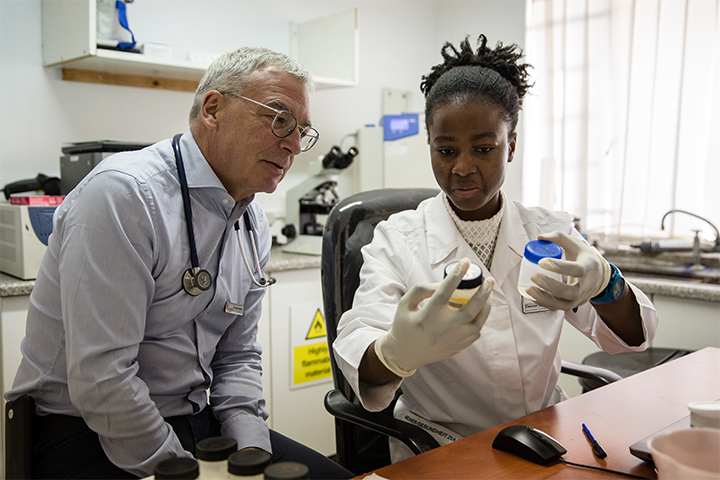In 2020 lab manager Tinei Shamu was able to further expand diagnostic capabilities. For example, the lab at Newlands Clinic now has a modern iSeq100 sequencer, which the team can use to determine resistance patterns of HI viruses to antiretroviral drugs based on blood samples. This is an important factor in the success of treatment, as it allows the therapy to be adjusted accordingly. Newlands Clinic now also has a microbiology lab for urine cultures. During the year it was also possible to acquire a Bio-Rad Cycler, which is used for HPV diagnostics and SARS-CoV-2 tests and is recommended by the WHO. Because of great demand all over the world, the device didn’t arrive in Harare until the beginning of 2021. It has since been put into operation by the lab team. It is the only one of its kind in Zimbabwe.
Long-term research continued
Despite the pandemic, Newlands Clinic was also able to take part in local, regional, and International research activities in 2020. These studies were presented at two major international conferences and appeared in various specialist publications.
The following constituted the clinic’s major research activities for 2020:
- Long-term study: International Epidemiologic Databases to Evaluate AIDS (IeDEA)
- The Burden of Non-Communicable Diseases in Zambia and Zimbabwe (cooperation with researchers from Zambia and the University of Bern)
- Cervical cancer care cascade at Newlands Clinic (cooperation with the University of Bern)
- Mental health Impact of the Covid-19 pandemic
- Viral evolution patterns in patients receiving Dolutegravir based secondand third-line antiretroviral therapy (dissertation by Tinei Shamu)
- A facility-based survey of cervical cancer prevention and control programmes in sub-Saharan Africa using the WHO toolkit
Please read more in our Annual Report 2020.

